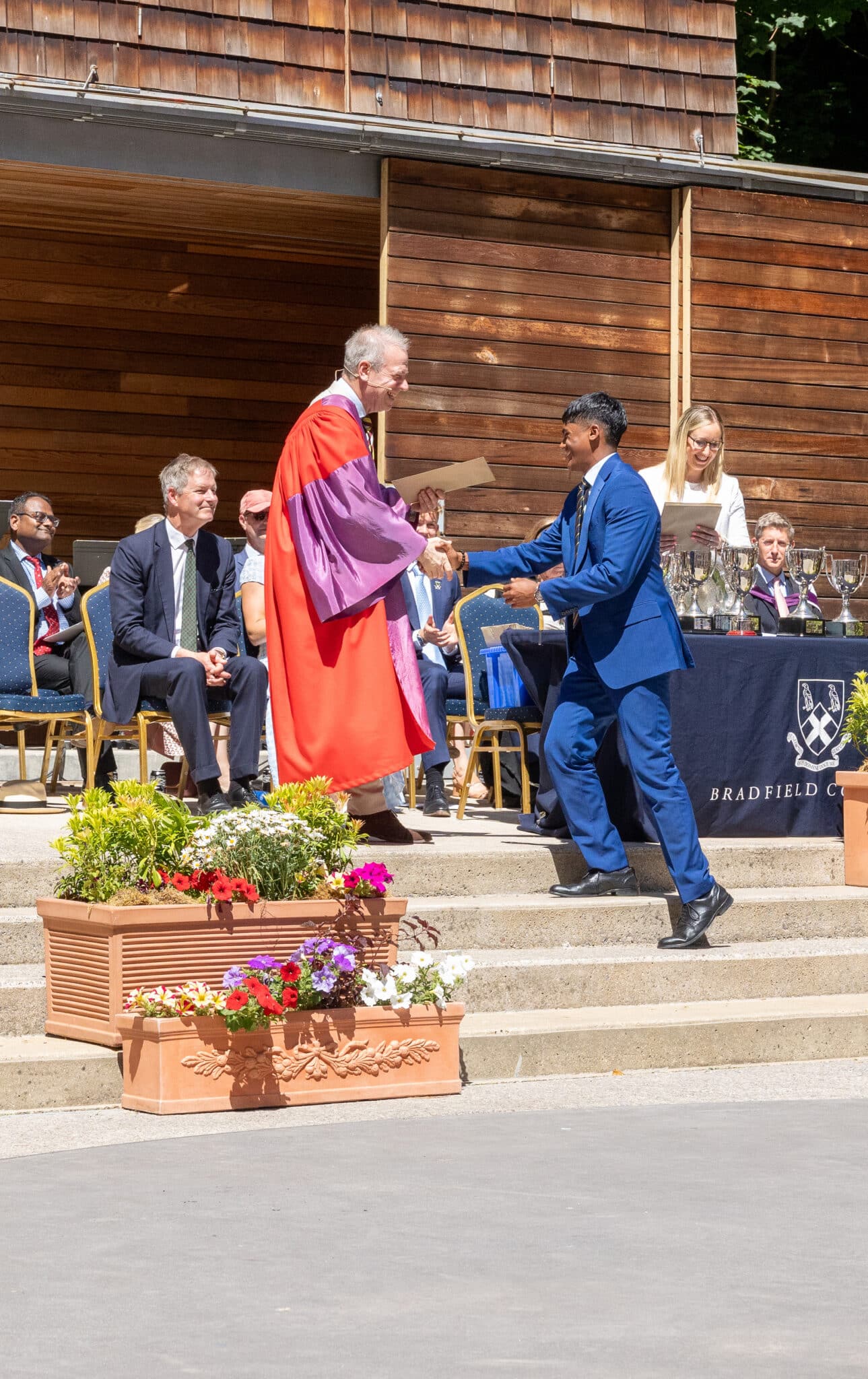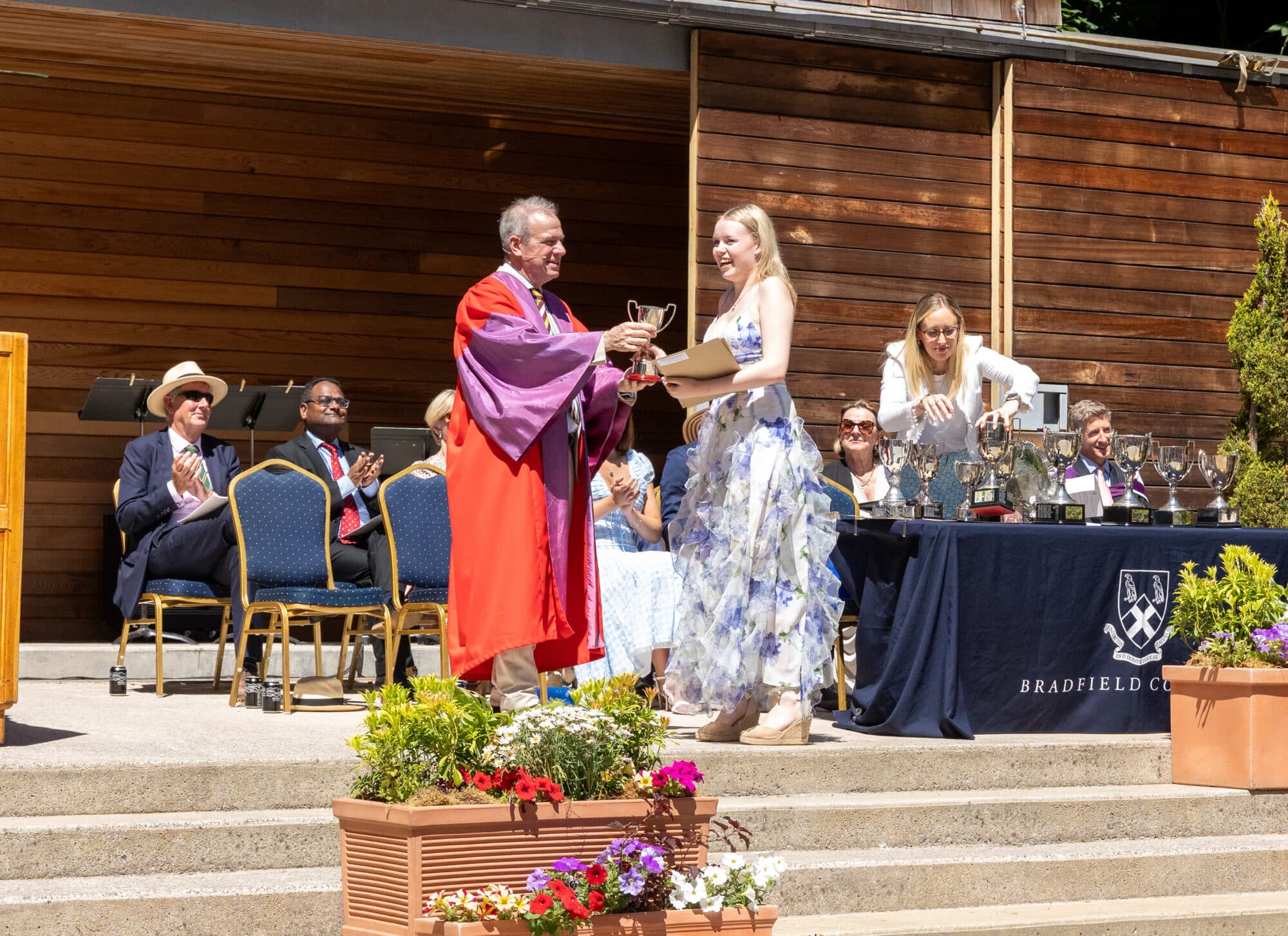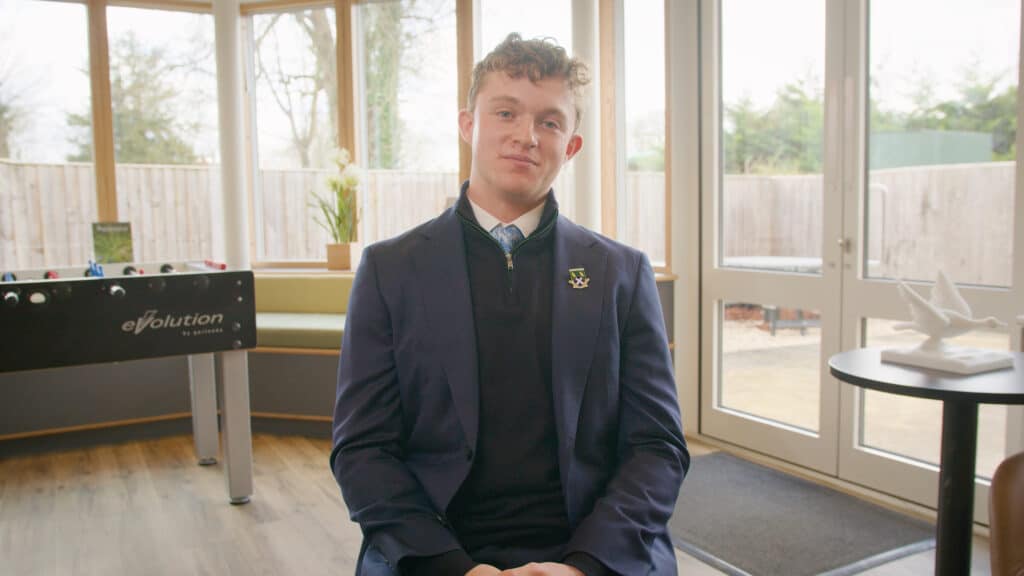This fact reflects great credit both on the pupils and on the College community as a whole. Children tend by nature to be optimists but negotiating work, play and relationships can be a complex challenge. Teaching, coaching and mentoring teenagers bring their own challenges. Our pupils are fortunate to be supported by staff who are unstinting in their efforts to promote the pupils’ best interests. In turn, we know that we are privileged to work with some wonderful young people and to enjoy the support of a parent body who have understandably high expectations of the College and of their children but who recognise that progress will not always be smooth or predictable.
Negotiating the digital world is an increasingly complicated aspect of the adolescent journey. Rapid advances in AI promise exciting opportunities and pose uncertain threats to us all. Pupils are fast mastering new skills in this area. Alongside them, our teachers are demonstrating their own considerable learning powers.
Long gone are the days when in a password audit, it was found that a teacher was using the password: “SnowWhiteDocDopeyGrumpyBashfulSleepyHappySneezyCardiff” When asked why such a lengthy password, he explained that he understood that it had to be at least 8 characters long and include one capital.
Confronted by the potential of AI to augment and transform the educational space, we are adopting a progressive approach whilst simultaneously emphasising the importance of critical thinking, ethics and values. These will become more important as the pace of change quickens and we see technology do things that were unthinkable a very short time ago.
Over the coming months we will be scoping the College’s next five-year Strategy. As we do so, we will be reevaluating the skills we need to teach, knowing the coming years will be a period of unpredictable technological and professional evolution. For now, the underlying principles of an education for life which helps pupils develop individual attributes in a community underpinned by strong values seems well adapted to a time when mindsets may prove the key differentiator between humans and machines.
Living with technology can be a challenge socially and pastorally, as well as academically and professionally. There has been much recent publicity around the impact of smartphones and social media upon mental health. Young people often struggle to live happily in a world where they are considered natives. The College has introduced progressively tighter policies in this area and has remained ahead of national guidelines. Moving forwards, we will continue to seek the right balance between enabling our pupils to enjoy the joys of technology and encouraging them to engage in the analogue activity which is so good for their physical and mental wellbeing. We must try to do likewise ourselves.
In the meantime, this story may ring true. Two red kites were circling fields beside the Pang when they noticed a figure that looked like a Bradfield pupil in the distance. “See that over there? What is that?” said the first kite. The second took a long look, “That’s a scarecrow. Looks authentic, doesn’t it.” ‘How can you tell it’s a scarecrow and not a student?”, replied the first. “Look at its hand. No phone”.
Whether it be smartphones or generative AI, teaching young people to use tools responsibly is part of our role as educators. Again, balance is key here – not because extensive technology use is necessarily bad in itself, but because of the things we are not doing when we rely on it. There is an opportunity cost in terms of social and emotional development when technology replaces face to face interaction. And there is an opportunity cost in terms of cognitive development if we rely on generative AI to do the work for us. There’s also a surprising environmental cost when you consider the carbon footprint of a Google search or ChatGPT query.







